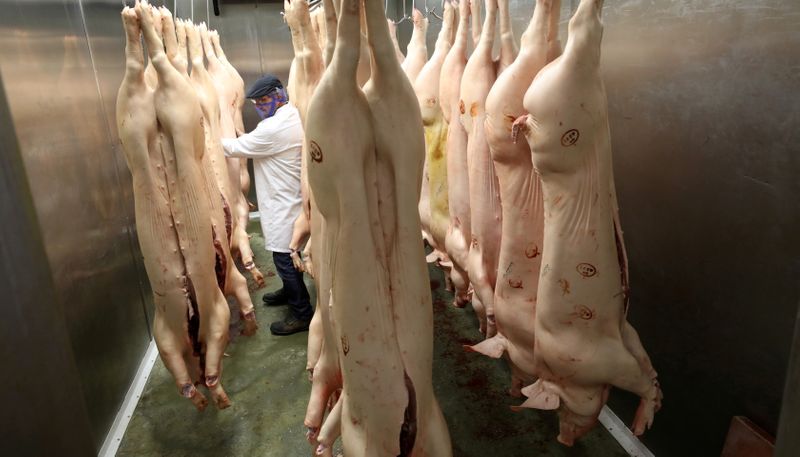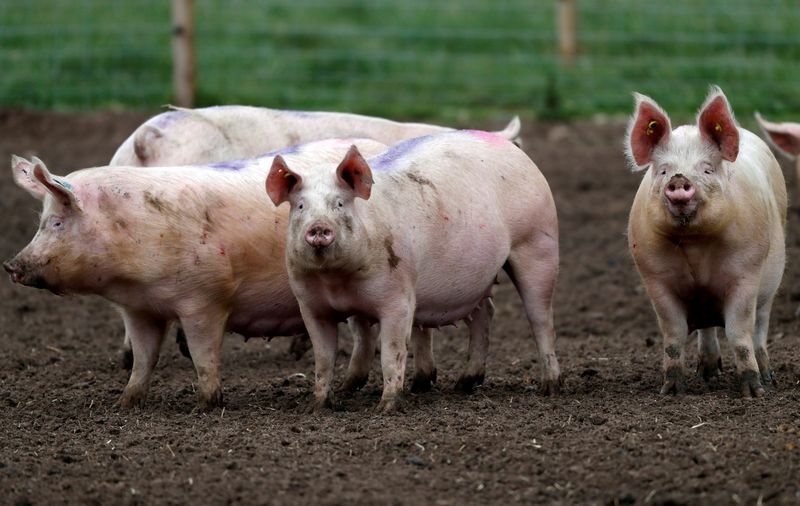By Kate Holton and James Davey
LONDON (Reuters) - Britain's pig farmers on Friday warned of a pork crisis unless the government urgently eased an acute shortage of abattoir workers and butchers that has left up to 150,000 pigs backed up on farms and facing a costly cull.
Brexit and the pandemic have combined this year to leave deep labour shortages across the British economy, with a dearth of drivers disrupting fuel and supermarket supplies.
In the food sector, a sudden exodus of eastern European workers after COVID-19 lockdowns eased has left many pig farmers fighting for survival, and on Friday they urged retailers not to turn to cheaper European Union pork.
The National Pig Association said the industry was hiking wages and trying to increase training and automation to help fix an industry that has always struggled for labour.
In the meantime, however, farmers face an acute shortage of butchers and slaughterers, leaving up to 150,000 pigs which should have already been slaughtered still on farms.
The threat of a cull of pigs has evoked memories of Britain's 2001 Foot and Mouth crisis, when some six million pigs, cattle and sheep were slaughtered, generating images of burning animal corpses piled high in the fields for months.
More recently farmers in the United States had to abort baby pigs and kill other livestock when the pandemic upended the food sector's supply chains.
The UK association, which urged the government to ease immigration rules for six to nine months to tide the industry over, said talks with the government had reached an impasse.
"I'm fielding calls, day in day out, from farmers all over the country who are in a perilous position where they have just got far, far too many pigs on their farm," Rob Mutimer, chairman of the association and a farmer in Norfolk, told Reuters.
He said the industry had always known it would lose European workers after Britain voted to leave the European Union but that the lifting of COVID-19 travel rules earlier this year prompted many, who had not been home for 18 months, to leave en masse.
"The whole food sector just cannot cope with such an enormous short term loss in labour," he said.
"Yes the industry needs to train English people, and it needs to become more automated, we know that, and it's happening, there's massive investment going into these facilities to reduce the dependence on foreign labour."
Mutimer said some factories were increasing wages by 15% and looking to invest more in technology as they faced up to the fact that the industry had relied on cheap labour for too long. For now though, they need government support and retailers to keep buying.

Adding to the pressure, he said his farm's own food costs had gone up by 35% in the last year.
"This is crucifying my finances because the food cost of feeding these extra pigs is horrendous, cash flow of not selling enough pigs is horrendous and on top of that pigs were in a position where they weren't making money anyway," he said.
